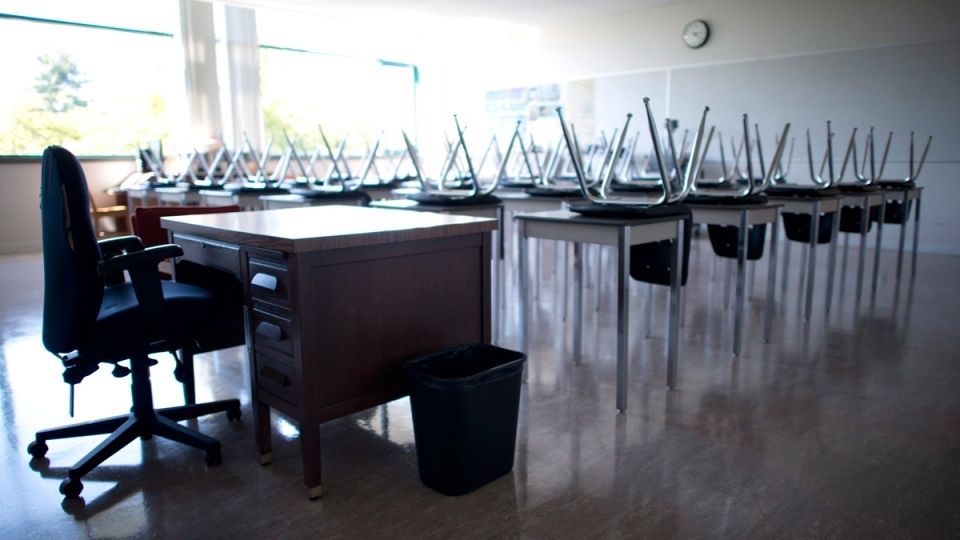New report details lack of representation on Winnipeg school boards, teaching staff
 The province said thanks to a $400,000 investment in five programs, students in grades one to 12 have received extra support to improve their learning skills over the summer. (File Image)
The province said thanks to a $400,000 investment in five programs, students in grades one to 12 have received extra support to improve their learning skills over the summer. (File Image)
A new report is sheding light on the lack of representation on Winnipeg school boards and staff, while calling on the province to enact policies aimed at improving educational outcomes for racialized students.
The State of Equity in Education report was drafted by the Newcomer Education Coalition, an organization formed in 2014 to promote culturally and socially inclusive learning environments for immigrant and refugee students.
The group launched the first State of Equity in Education report in 2020 and issued 10 calls to action to the Manitoba government, school divisions and faculties of education.
“The first report, we really looked at that representation piece in terms of what community was saying, so things like terminology. We looked at creating an equity office which led to another coalition that's looking within each of the school divisions, things like hiring policies and what that looks like for people to be able to find that representation,” said Kathleen Vyrauen, Newcomer Education Coalition co-chair.
The 2021 report found just six per cent of school trustees identify as racialized, noting only the Winnipeg School Division and Seven Oaks school boards have racialized school trustees. Four school divisions have no racialized trustee representation, the report found.
It also notes a lack of representation for teachers in Winnipeg schools.
"The demographics of our student population right now are not being reflected in the teaching staff,” Vyrauen said. “So with immigration trends and all the newcomers and what classroom dynamics look like, I think it’s important that teachers have that lived experience to be able to connect with their students."
To address these gaps, the report outlines five new calls to action, including calls for the provincial government and locally elected school boards to implement employment and student equity policies and programs, and to work with newcomer, refugee and immigrant-serving organizations to increase the number of racialized people pursuing careers as educators.
This is on top of three other calls carried over from the previous report.
“We have this pool of internationally trained educators that are having a hard time transitioning into the teaching force. So for us, we really want to highlight that and find ways in which we can support them,” Vyrauen said.
The findings of the report will be presented to school divisions, faculties of education and the province.
The entire report can be found here.
CTVNews.ca Top Stories

5 rescued after avalanche triggered north of Whistler, B.C. RCMP say
Emergency crews and heli-skiing staff helped rescue five people who were caught up in a backcountry avalanche north of Whistler, B.C., on Monday morning.
Quebec fugitive killed in Mexican resort town, RCMP say
RCMP are confirming that a fugitive, Mathieu Belanger, wanted by Quebec provincial police has died in Mexico, in what local media are calling a murder.
Bill Clinton hospitalized with a fever but in good spirits, spokesperson says
Former President Bill Clinton was admitted Monday to Georgetown University Medical Center in Washington after developing a fever.
Trump again calls to buy Greenland after eyeing Canada and the Panama Canal
First it was Canada, then the Panama Canal. Now, Donald Trump again wants Greenland. The president-elect is renewing unsuccessful calls he made during his first term for the U.S. to buy Greenland from Denmark, adding to the list of allied countries with which he's picking fights even before taking office.
UN investigative team says Syria's new authorities 'very receptive' to probe of Assad war crimes
The U.N. organization assisting in investigating the most serious crimes in Syria said Monday the country’s new authorities were “very receptive” to its request for cooperation during a just-concluded visit to Damascus, and it is preparing to deploy.
Pioneering Métis human rights advocate Muriel Stanley Venne dies at 87
Muriel Stanley Venne, a trail-blazing Métis woman known for her Indigenous rights advocacy, has died at 87.
King Charles ends royal warrants for Ben & Jerry's owner Unilever and Cadbury chocolatiers
King Charles III has ended royal warrants for Cadbury and Unilever, which owns brands including Marmite and Ben & Jerry’s, in a blow to the household names.
Man faces murder charges in death of woman who was lit on fire in New York City subway
A man is facing murder charges in New York City for allegedly setting a woman on fire inside a subway train and then watching her die after she was engulfed in flames, police said Monday.
Canada regulator sues Rogers for alleged misleading claims about data offering
Canada's antitrust regulator said on Monday it was suing Rogers Communications Inc, for allegedly misleading consumers about offering unlimited data under some phone plans.

































